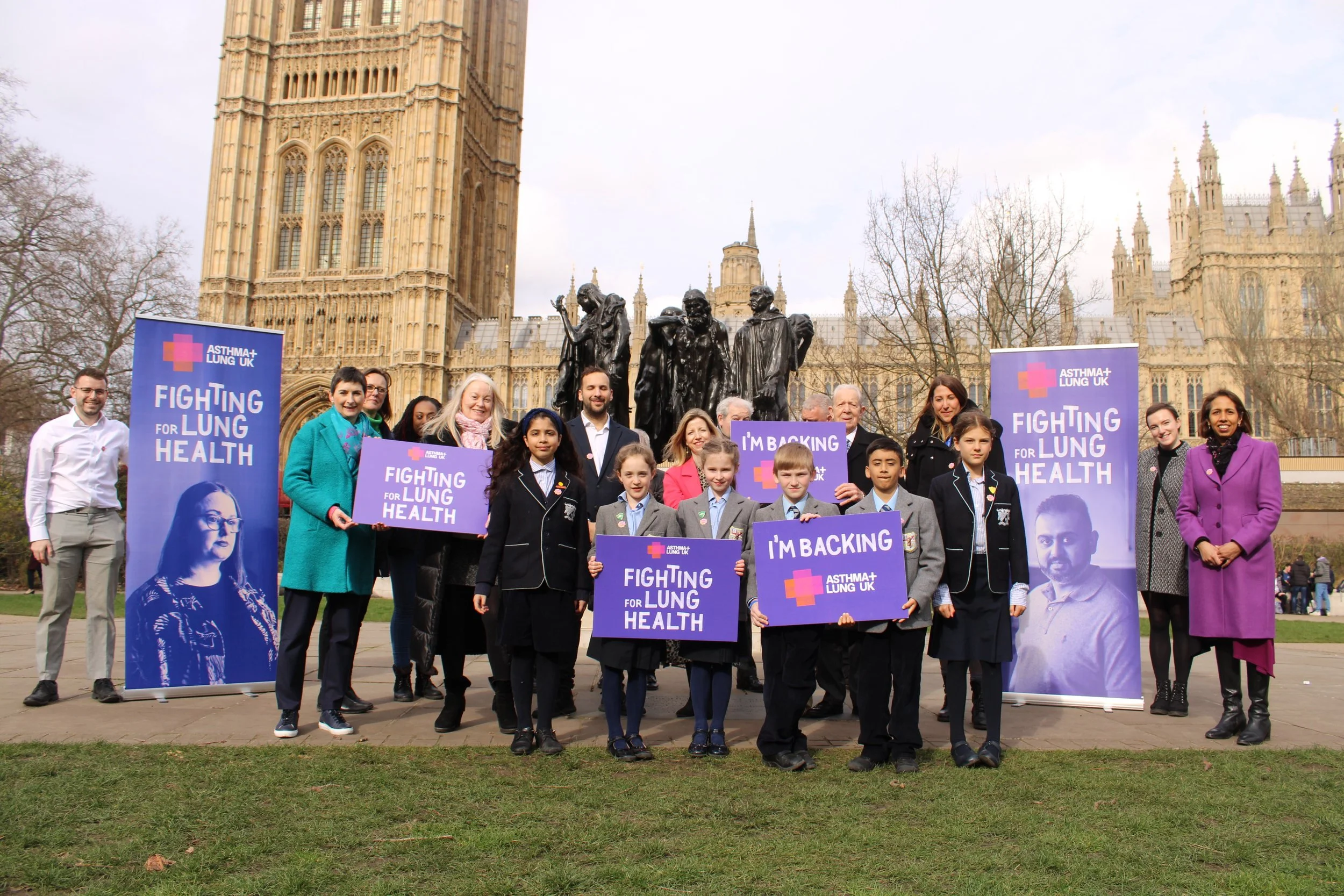Fighting to end the lung health lottery
We are calling on the government to address stark inequalities in lung health across the UK with our recently launched End the Lung Health Lottery campaign.
Our latest research found rates of emergency admissions and deaths from lung conditions are much higher in areas such as Blackpool, Liverpool and Inverclyde than other parts of the UK. If we want to stop people dying avoidably from their lung conditions, underlying health inequalities – such as high levels of air pollution, stubbornly high smoking rates and poor quality housing leading to mould and damp - need to be urgently addressed. In addition, despite the tireless work of NHS doctors, nurses and other healthcare professionals, basic levels of care for people with lung conditions remain patchy.
A stark divide
As part of our latest research, we analysed and ranked the latest rates of emergency hospital admissions and deaths from lung conditions for 216 local authorities throughout the UK. These included asthma, chronic obstructive pulmonary disease (COPD) and respiratory infections like flu and pneumonia.
We found that some areas such as Liverpool or Blackpool, have death rates from lung conditions over two times higher than more affluent areas such as the London Borough of Richmond and Rutland in the East Midlands. There is also a stark north-south divide in England. Six out of the 10 areas with the highest rates of emergency admissions and deaths from lung conditions are in the northwest of the country.
The reasons why some people might be more likely to be admitted to hospital in an emergency or die in some areas of the country are complex. It could be that they live in areas where there is high air pollution, high smoking rates or poor quality housing, where mould or damp can make people’s lung conditions worse. Whatever the cause, we think it is vital that people with a lung condition get the best chance, wherever they live.
Living in constant fear
Our supporter Joanne, 49, a teaching assistant living near Liverpool, an area our research found to have particularly high rates of emergency admissions and deaths, tragically lost her daughter Amy, 22, to an asthma attack last year. Amy spent years struggling with severe asthma, and left two young children behind.
“Amy was frequently rushed to the hospital with life-threatening asthma attacks. One minute she was completely fine, and the next, she was fighting for breath. She lived in constant fear, waiting for the next asthma attack to strike. Stress, winter bugs, and pollen all played a part in triggering her asthma and we also wondered if air pollution was to blame. Her son’s school was six minutes away, but she struggled to walk there, as it was on a busy road with lots of traffic.
“One day last year, in the early hours, I had a call from Amy’s partner Keagan. Amy had collapsed after an asthma attack and was rushed to the hospital. Doctors did everything possible to save her, but she died in the hospital two days later. There isn’t any pain comparable to losing your child. Amy’s death has left a gaping hole in our family. I’m determined to keep her memory alive and to raise awareness about how serious asthma is, to prevent other families going through what we have. Amy was often told ‘it’s just asthma, you need to get on with it.’ It wasn’t just asthma for Amy – it controlled every aspect of her life.”
Health inequalities in lung health must be urgently addressed to stop people dying avoidably from their lung condition. To get involved in our End the Lung Health Lottery campaign, sign our petition and help us address inequalities in lung health in the UK www.asthmaandlung.org.uk/end-lung-health-lottery
We’re here for you
We want to reassure everyone living with a lung condition that we’re here for you, wherever you live in the UK. If you are worried about your lung symptoms or lung condition you can give our Helpline team a call on 0300 222 5800 (Monday-Friday, 9am-5pm). Or you can visit our website for expert health advice on your lung condition. We also have more than 150 support groups up and down the country offering support and advice, as well as online groups which you can join wherever you are.
We empower people with lung conditions to make changes that can be transformative.
Please donate now to help make sure people with lung conditions can live well this year.








Beki is a PhD student from the West Midlands. She has several health conditions including severe asthma and Ehlers-Danlos syndrome (EDS). EDS is a rare inherited condition that affects connective tissue. Last May, Beki set herself a fundraising challenge to complete 180,000 steps to raise money to mark World Asthma Day and EDS Awareness Month.